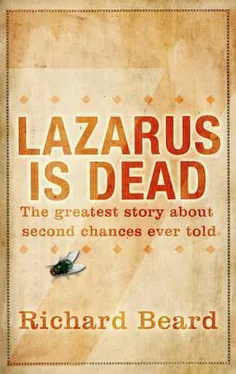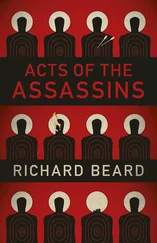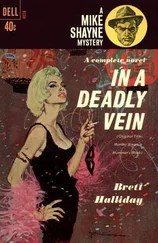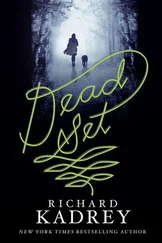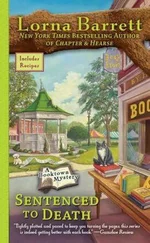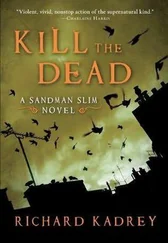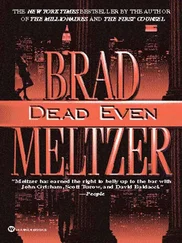‘Were they?’
‘It was ordained.’
‘Why should this be different?’
Lazarus and Jesus should have been living in the mountains like lions. Or not in the mountains, but anywhere else but Nazareth.
Their friendship, however strong it had once been, was never destined to last. Quite the opposite. The two boys had to be uncoupled, placing one at either end of the country. Some decisive event had been necessary to prise such friends apart, and that event was Jesus standing inept on the shore as Amos drowned in the lake. Their separation was in the design.
2
Lazarus regrets everything. If this is how life ends he must have made mistakes. He’d planned to live enough life for all three of them.
He remembers the pressure of his early ambition, hot and tight enough to burst. In Nazareth the streets narrowed, the houses shrank to nothing, and he lay awake for long afternoons listening to silence and his echoing solitude. He was dissolving, at one with the dates and figs melting to treacle outside. He has the same feeling now that he’s dying.
Joseph said he was too young to leave Nazareth, and anyway none of them were city people. Jerusalem would swallow him whole, while Galilee was safe and his friends were there to help him. Lazarus laughed. He remembered the shore.
Menachem the Rabbi supplied the opportunity. He had always said the two Bethlehem boys were special, but it was Lazarus he took aside. His cousin Absalom near Jerusalem had an opening in the sheep trade. It wasn’t much, but a young man with a pragmatic outlook could make a comfortable living. If he worked hard and made connections at the Temple, he could earn himself a fortune.
Martha and Mary would travel with him, to keep him company and help him set up house. Luckily, neither of his sisters was married.
‘You are the one I have chosen.’ Menachem’s milky eyes focused somewhere to Lazarus’s left. ‘King David, too, left home in his youth. A great future awaits you in Bethany, I’m sure of it. I have prayed for you, Lazarus of Nazareth. God will do the rest.’
Lazarus found Jesus in Joseph’s workshop. It was a long time since their last proper conversation.
‘I’m going to Jerusalem. Menachem has it all plotted out.’
Jesus was experimenting with fasting, hoping for visions of the heavenly mystery. In real time this meant he was planing the edge of a door in the wrong direction. He could have hurt himself.
‘You should come. We’ll earn enough for two. Easily.’
It was the final appeal Lazarus would make to their friendship. Despite Amos, he was prepared to make a last effort, because he’d have sworn they still had feelings in common, like not feeling at home in Nazareth.
‘Jerusalem,’ Lazarus repeated, as if the name of the city spoke for itself. Literally anything was possible in Jerusalem, and he could see that Jesus was tempted.
But it was too late, with too much left unspoken. They were friends, yes, but Jesus would soon be a carpenter, like his father before him. Lazarus had grander schemes in mind; he was leading the way and he could sense that Jesus was jealous. Jesus wished he were Lazarus, but no one gets everything they want.
*
Out in the square the children play sick man tag, keeping one eye open for Jesus, who could appear in Bethany at any time.
There are plenty of visitors who arrive in his place. They drift in from the villages and from Jerusalem. Most are strangers but some are friends, because Lazarus had many friends. They want to pay their respects.
‘My brother is not dead.’ Martha turns them away. ‘You’ve wasted your journey.’
But Martha can’t stop them leaving gifts and offering compliments. They act as if Lazarus is accomplishing a very difficult task, and make it worse by not speaking ill of him, as if there is no hope.
Isaiah makes the trip from Jerusalem.
‘I was wondering about the date for the wedding,’ he says, but his pretence can’t last. He hands Martha a bag of coins, and closes her hands around it. ‘Lazarus was a good man. It is the least our family can do. You should take him to see his tomb.’
‘He can’t see.’
‘There is comfort in being well prepared.’
‘Our brother is very ill,’ Martha says. ‘Even small distances are a challenge.’
In this period of terminal decline Cassius visits Bethany several times, and not always in disguise. In battle uniform he rides into the village, accompanied by officers on restless chargers from the garrison. Cassius manoeuvres his immense black horse as far as Lazarus’s gate.
Martha comes to the doorway. She squints into the sunlight and dries her hands on a cloth. The Roman horse sniffs in her direction, as if curious to know whether she’s edible. Cassius leans forward in the saddle.
‘Any signs of improvement?’
Martha turns and goes back inside.
Cassius smiles. Jesus can walk on water but he can’t help Lazarus.
Yanav comes out to ask Cassius to leave the family in peace.
‘With pleasure,’ Cassius says, wheeling his horse away. He calls back over his shoulder. ‘And thank you. You’ve done an excellent job.’
1
Lazarus insists at all times on lamps that are filled and lit.
‘Send for Jesus,’ Mary says. She can’t think it and not say it. ‘Send for Jesus. Send for Jesus. Send for Jesus.’
‘More oil, more wicks,’ Martha says. ‘Don’t let any go out.’
People can get used to anything, except dying. Lazarus has known for years that Jesus is not coming to Bethany and he will not come. In the day as at night he tells the passing of time in the guttering of flames in oil. He is terrified when a wick starts to flicker and smoke.
More lamps! More! Don’t let the light go out.
Lazarus rarely speaks. When he makes the effort, it is to curse the winter of his birth. He should have been killed in the Bethlehem slaughter, as good as dead from the moment he left the womb.
‘Fight,’ Mary says. ‘Stay alive long enough for him to come.’
‘Mary, Jesus has had his chance. He was in Jerusalem. He didn’t want to see us.’ Martha has no patience for false comforts. She asks Yanav if there’s anything else they can do.
He shakes his head. Yanav tends to Lazarus’s hair, cropping it so short the ridges of his skull are visible. Every other day he shaves him. The smallpox scabs have dried and Yanav smoothes oil over the pocked skin of Lazarus’s face, consoling him with long strokes of the Syrian copper blade.
Martha takes her brother’s hand, and Lazarus grips on hard. If he holds on tight enough she’ll lift him to his feet. If she lifts him gently he can walk.
‘Where do you want to go, Lazarus?’
He pulls, but he does not rise up. His wasted arms tremble.
‘Lazarus, where?’
He falls back.
He tries to speak, tries to say. His thoughts and memories and feelings have come to nothing. It doesn’t matter how much anyone learns. Poc. The knowledge disappears. One thing after another, and Lazarus plucks imaginary objects from the air. The opportunity to marry. Poc. The decision to be good, or the chance once more to see Lydia naked. Poc poc. To have children of his own and to show them the glory of the Temple. Poc.
Months ago, work had slipped from his power. Then Jerusalem, then Bethany, then his own yard. He has this room. He has Yanav the healer and his sisters.
Martha takes Mary in her arms. They are both exhausted.
‘Don’t cry, Mary. Don’t cry, my baby girl.’
They break apart, and holding hands they need only a brief second of eye contact. They turn to face their brother and Martha takes an audible breath.
‘We’re sending for Jesus,’ she says. ‘Whether you like it or not.’
Читать дальше
